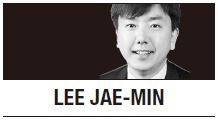
As heralded, the minimum wage is being increased substantially by the Minimum Wage Commission.
The commission is raising the minimum wage from 6,470 won ($5.80) per hour this year to 7,530 won next year, a 16.4 percent increase and the largest increase since 2001. The rise will continue until the minimum payment reaches 10,000 won. As of now, Korea’s per hour minimum wage is roughly in the upper middle among Organization for Economic Cooperation and Development countries, when per capita gross national product and gross national income are factored in.
The increase is part of the government’s effort to narrow the gap between the haves and have-nots in Korean society, as the widening gap is now threatening social cohesiveness. It is one way to alleviate the problem by providing real benefits to low-wage workers and their families.
On top of that, the increased wage will lead to fewer people quitting and stable employment, ensuring a productive workforce. More importantly, it will result in increased consumer spending, spreading positive effects in the economy.
Low-wage workers from other countries will also become important beneficiaries of this new change. This is a good development, as they will receive a fair share of their contribution to the national economy. Overall, it’s indeed a step in the right direction.
However, the minimum wage hike is also shaking the Korean labor market, with small businesses and shop owners voicing concern over the increase in labor costs.
They say that higher labor costs will drive them out of business gradually if the minimum wage reaches the 10,000 won mark over several short intervals, eventually hurting the Korean economy and welfare of low-income earners.
Only time will tell how this latest policy will turn out.
At any rate, a predictable change in the era of higher minimum wage will be the more widespread use of automated machines at shops and restaurants.
Compared to its peers, Korea has been relatively slow when it comes to automation in small shops and restaurants. Self-check-in kiosks are still hardly seen at Korean airports, despite the trend at other major airports these days. Self-ordering kiosks at restaurants are still a relative rarity in Korea compared to neighboring Japan.
While “food court” style self-service eateries are on the rise, full-service restaurants -- even for small mom and pop shops with cheap prices -- are more common in Korea.
There has notably been a slow pace of automation for a country known as the most wired with the fastest internet connection.
Given Korea’s potential, the hikes in the minimum wage will make automation more appealing to owners and employers.
In the global workplace, kiosks and automated machines are increasingly replacing human labor. Last November, upon the increase of the minimum wage in certain jurisdictions, the first response from fast-food eateries such as McDonald’s and Wendy’s was the expanded installation of ordering kiosks. Touch-screen service machines and ordering kiosks are nothing compared to self-driving cars at the doorstep of commercialization or artificial intelligence’s deep learning capability displayed by AlphaGo. Certainly, more automation will define our future labor market.
Automation means the reduced hiring of workers. Even a simple, self-service assistance machines threaten routinized low-wage jobs. So, if owners in Korea turn to automated machines in response to increased wages, we will see rather unintended consequences at least in the short run: Job losses for certain people in certain segments of the economy. The very group of people to be protected by the new policy may bear the brunt of the change, at least in the initial stage.
Consider what happened with the government’s plan to reform the part-time lecturer system at universities to improve their working environment.
Seemingly enhanced protection for part-time lecturers on campus mandated by the legislation of 2011 has been met by reduced hiring by universities.
Since the inception of the legislation, part-time lecturers themselves have opposed its implementation, which has ultimately forced the National Assembly to push back the implementation as many as three times since 2011, with the new date now set for Jan. 1, 2018.
Again, over time we will know the final balance of pros and cons for the increase in minimum wage. But the real effect will be more complex than it seems.
---
By Lee Jae-min
Lee Jae-min is a professor of law at Seoul National University. He can be reached at jaemin@snu.ac.kr. -- Ed.








